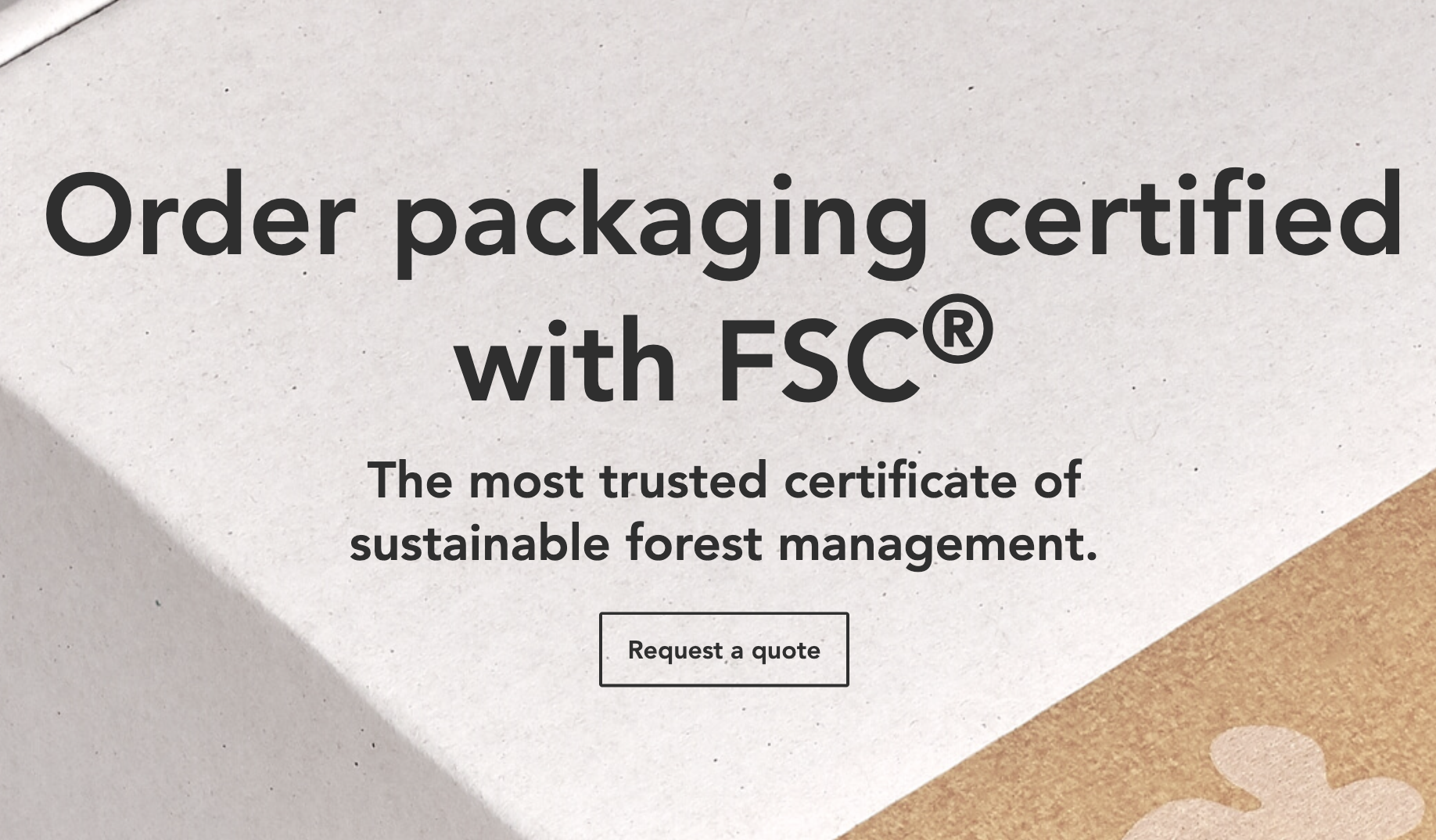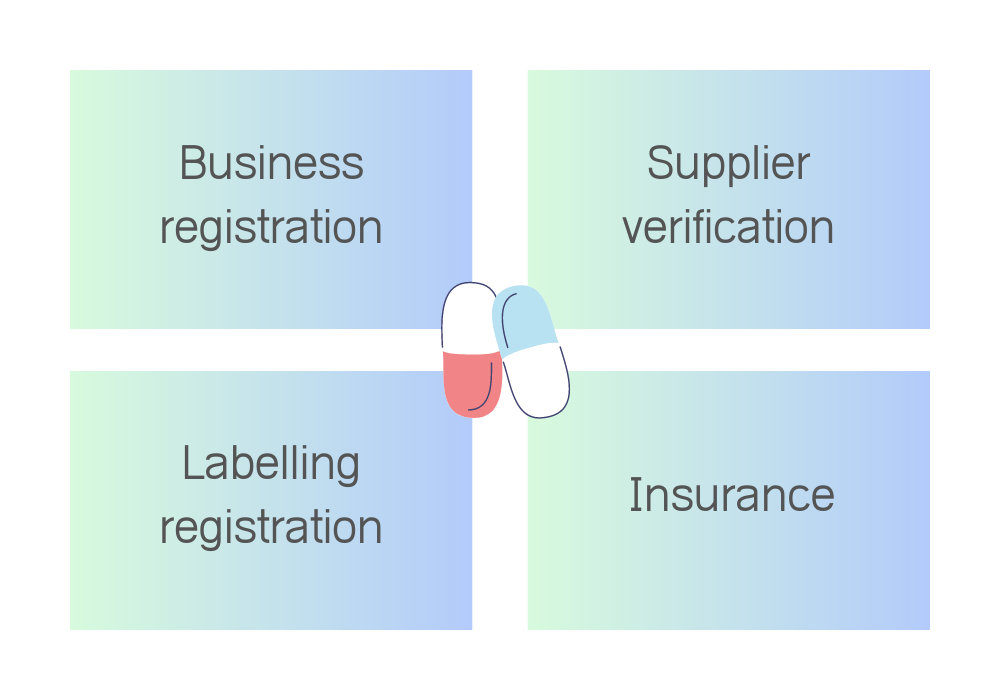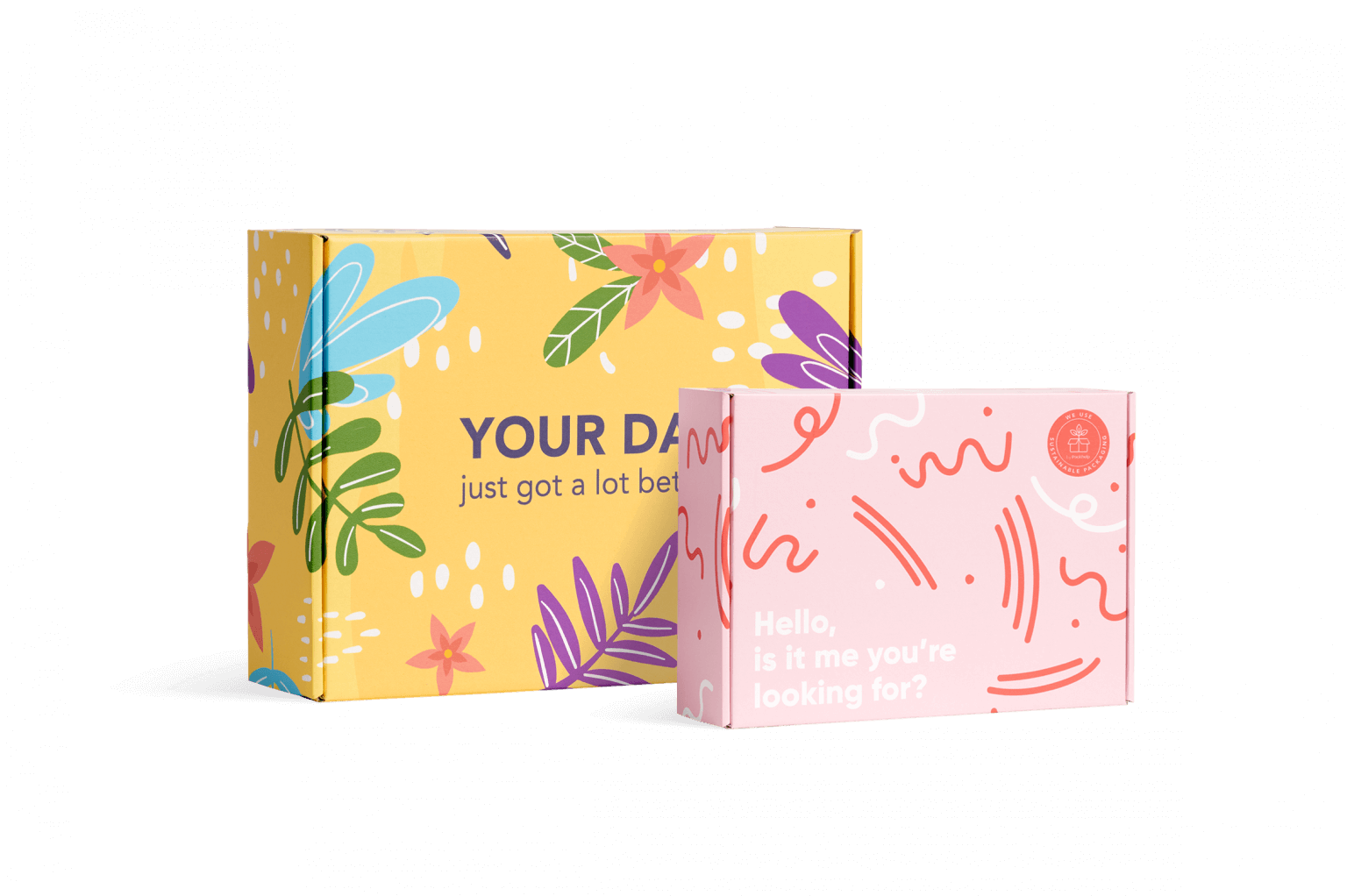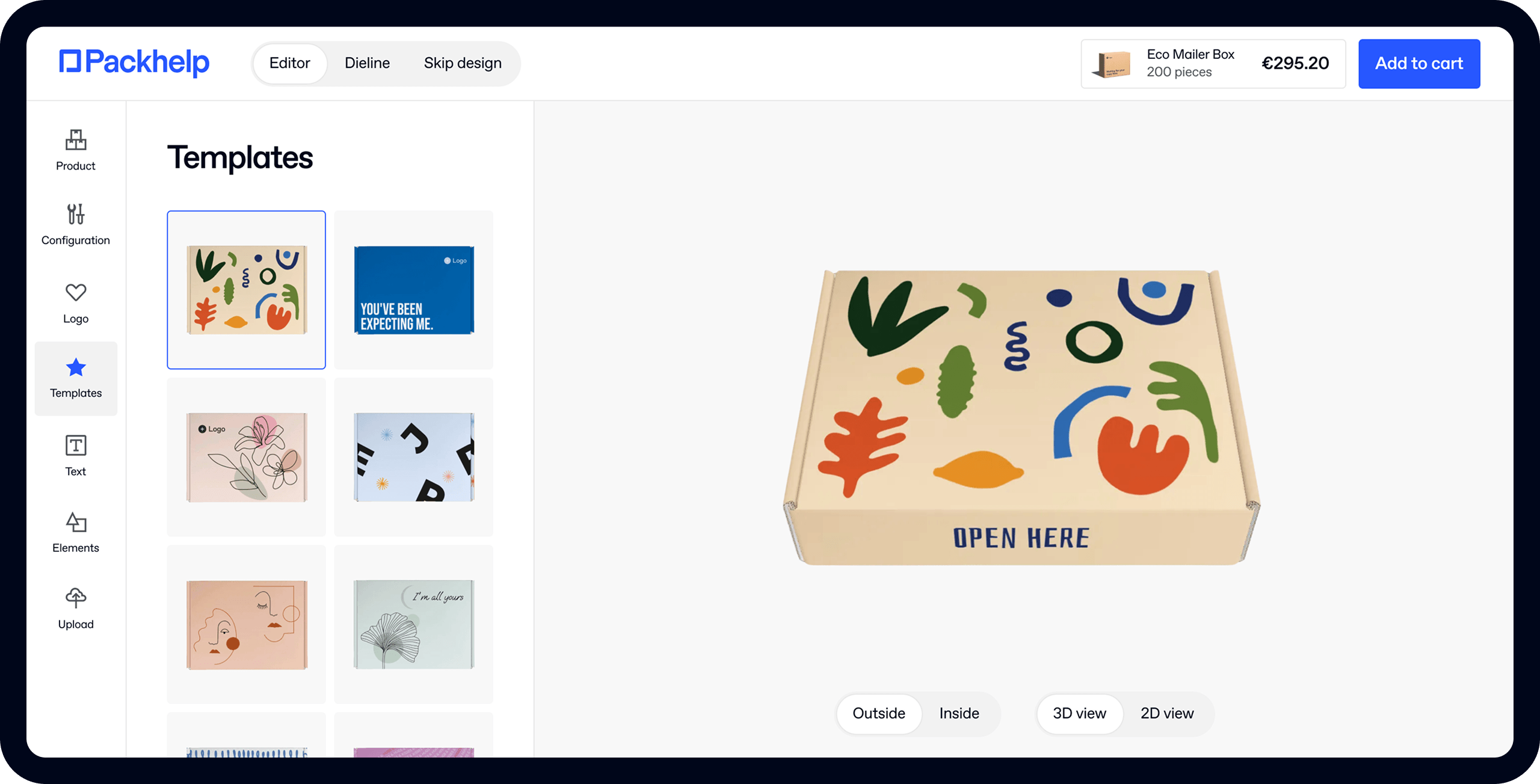How to Start a Supplement Brand That People Trust: Regulations, Branding, Labelling

- 200+ templates & patterns
- Real time 3D packaging preview
- Upload logo and choose brand colours

Subscribe now! Receive 15% discount.
Don’t miss out – get 15% off your first order when you join the newsletter. It’s fast, free, and kinda smart.
You're now subscribed!
In this article:
Supplements are a challenging but promising business.
In this in-depth guide, you’ll find out why. You’ll also learn all the steps to successfully launch your own brand.
Because of its uncertain nature (is it food? Is it medicine?), the supplement industry is a peculiar beast.
This article will answer the following questions:
- Is the supplement industry a good business opportunity?
- How do I start a supplement business?
- What are the yeses and nos of the supplement industry?
- What's good branding for your supplement company?
- How do you correctly label your supplements?
- What are the best strategies to gain customer trust?
Reading through it all takes only a few minutes but after that, you’ll be able to wrap your head around the topic.
So, without further ado, this is how to build a trustworthy supplement brand:

Supplement business statistics
So you want to set up a supplement company, but you’re not sure what’s been going on in the business? Here are some statistics to help you make data-driven decisions.
The vitamin and supplement industry is growing fast.
In 2022 alone, the estimated market size was $220 billion worldwide. And in 2023, the UK is going to be in the global top 5 of supplement markets, with total revenue of circa $575 million.

That’s some huge market potential we’re talking about.
And which supplement branch is the most successful? By far, it’s vitamins, taking up 30.8% of the market. But the most profitable product category has the toughest competition.
Currently, the biggest potential is in the protein supplement market, with estimated annual growth of up to 13.4%.
But that doesn’t mean that selling other product groups like minerals and herbs isn’t worth it.
Supplements are one of the fastest-growing industries - so if you have a good idea and expertise, getting your market share is a matter of time. As long as you know how to start your business right.
And the most important thing is…
Gaining trust
There are 4 main areas that need work in order to create a trustworthy supplement brand:
- Adhere to your country’s standards and regulations
- Nail the branding and packaging
- Label correctly
- Use trust signals.

Being a shady supplement brand is not only a business risk but also a legal risk. While this industry can be extremely profitable, it requires a lot of care and attention from the undertaker.
The following section primarily deals with regulations in the UK but it’s still a great point of reference for your country of residence.
Supplement business regulations
Selling supplements is a responsibility.
It’s because of their medicinal nature - they are supposed to, in one way or another, help people restore their well-being. Hence all the regulatory considerations surrounding the topic.
The official laws for supplement businesses worldwide are, obviously, different for every country. But the definition stays more or less the same.
What are dietary supplements?
According to the FSA, dietary supplements are all edible substances whose purpose is to supplement any food diet.
They are a concentrated source of minerals, vitamins, amino acids or other nutrients that are supposed to help the body. They are usually sold in dose form or with dosing instructions.
Why is defining dietary supplements important?
Because in order to know what good supplements are, we need to know what results are expected from taking them and what form they should have.

On this basis, we can conclude that good supplements enrich the normal diet of a person through small but effective doses of beneficial elements.
A great supplement brand does everything in accordance with the law, uses responsibly sourced ingredients and markets itself as an additional benefit, not a cure-all solution.
What is strictly forbidden for supplement businesses?
First and foremost, you cannot claim your product has the power to treat, prevent or cure any disease or adverse medical condition. Basically, medicinal claims are off the table.
One of the most controversial things about wellness and fitness supplements is that they are not as controlled as pharmaceutical products.
This means that usually, taking supplement pills or gummies is at the customer’s own risk.
If you want to create a successful supplement business, ALWAYS use the services of manufacturers and suppliers that you have vetted yourself.

This is not just a matter of a business decision - your customers’ health and well-being are in your hands. Be absolutely certain that what you’re selling is safe.
Which leads us to the last point: avoid banned substances at all costs.
Embellishing your product with illegal substances for faster, more visible results is a shortsighted strategy that has ruined not only many businesses but also bodies.
Stick to the bright side, test your supplements and get them approved by the proper authorities - and everything should be just fine!
How to start a supplement business
What kind of supplement company do you want to be?
Do you want to exude luxury like the hair vitamin brand Oase or do you want to radiate with positivity like the CBD oil brand Hemp Juice?
Once you decide this, you can go on and start setting everything up.

The basic 4 steps are:
1. Check if your business must be registered with the proper authorities. Depending on the country, it’s going to be food or medicine departments.
In the UK, registering your supplement business with the Environmental Health or Trading Standards service is obligatory.
It’s not a challenge, though. The Environmental Health Office is here to help, not pull the rug from under your feet. Don’t hesitate to ask them anything you have doubts about.
2. Find a trusted supplement manufacturer or wholesale supplier. You have to make sure to assess the safety of your products.
It’s always a great idea to contact your local food administration for advice on this crucial matter. In the case of the UK, that’s the Department of Health and Social Care and the Food Standards Agency (FSA).

3. Figure out the current local labelling registration. The UK’s government page offers a few guidance sheets on this matter.
Proper labels are crucial for every single product you’re going to sell, so make sure you understand the law. But read on - in this article, you'll learn exactly what that means.
4. Insure your company. There is no getting around it - unexpected things happen all the time. Especially when you’re selling consumable products.
There are a few dedicated insurance companies in the UK that specialise in health and supplements brands, like:
Better safe than sorry!
And, once all that is done, it’s time to give your brand a soul.
Successful branding for a supplement business
Every business needs consistent branding.
The name, the visual design, the message, the product… They all need to work in unison if you want to solidify brand identity and authority.
You want to be seen as dependable, positive and regular in your business efforts.
Consider Hemp Juice, the CBD brand mentioned above. Their message and design are consistently upbeat, colourful and calm. They use witty product names like “Zen You” and “Instant Chill”, which their demographic can relate to.

Their logo is the colour of the sun, the website gives off a sandy beach vibe, and their custom packaging embraces the summery aesthetic.
See how packaging can support your brand identity
Hemp Juice are different from countless other CBD brands out there because they are consistent and know their audience.
And that’s the first step.
Find your mission and niche
As demonstrated, the supplement industry is booming, and so is the competition.
What can you introduce to the game that’s going to help you stand out? What’s so special about your offer?
Building from the ground up a brand that caters to every taste and fancy requires unfathomable marketing expertise. And even when you have it, it’s a challenge.
Niche marketing is usually more effective than general marketing because it’s more likely to directly target potential customers.
For example, Vitamom is a pregnancy supplement brand based in the Netherlands. The company’s offer consists of only a few products, all designed to support the health of a pregnant person and the baby.

Instead of trying to branch out and cater to a wider audience, Vitamom have carved themselves a niche. It's moms that need a healthy dose of energy and bliss every day but are tired of navigating the labyrinth of corporate supplements.
They are a trusted company because, among other reasons, they stick to their mission: Empowering mothers and helping them find a healthy product online.
Health is a complicated enough topic. Keep your mission simple and laser-focused.
Answer real problems with real solutions and you will stand out from the crowd.
Create consistent packaging
There’s much to say about packaging design - the box and container are not just there to hold and protect the supplements inside.
Packaging is the customer’s initial point of contact with your product.
It’s the first thing a potential buyer sees on the shelf or upon opening the ecommerce shipping box. The perfect opportunity to catch an eye, say hello or provide more information about your brand.
By packaging your supplements in charming plastic jars imitating glass and custom printed boxes, you are creating a positive unboxing experience which will impact your customer’s perception of your brand.
And it’s not just about this one unboxing moment. Whenever you’re searching for a high-quality bottle for your supplements, remember that this container will serve your customers for months at a time.
The material must be sturdy and non-toxic, the cap screwed on without a hassle, and the design pleasing to the eye.
Why is convenient packaging important?
But what is good visual packaging design, anyway?
1. It showcases your logo which can be the central element or just a piece of the overall design, like below:

The brand logo is the most crucial part, so the print must be vivid. Make sure you use a high-quality vector file to avoid pixelation.
2. It’s consistent with your logo and brand colours. You can be very creative with your packaging ideas but always keep them in tune with your branding.

In the picture, the rigid boxes have a toned-down pink hue that is often associated with luxury. While that fits the hair vitamin industry, there are many other ways to approach the colour question.
If they fit your aesthetic, lively colours are more attention-grabbing.
3. It uses the space well. The labels and box walls are neither awkwardly empty nor cluttered. That is not to say that patterns don’t look good on the packaging. Here’s proof that they do:

The most important elements like the logo and product name have to stand out.
The design is obviously going to be different depending on whether it’s your primary, secondary or tertiary packaging. But keep in mind that all of them should complement each other rather than cancel each other out.
Read about designing packaging for a new product
Design a compelling website
As with packaging, your website should represent what you stand for as a brand.
It’s the first place where the customer will learn more in-depth information about your supplement business. Make it intuitive, responsive, mobile-friendly, fast and practical.
But there’s more.
As with everything visual, your website has to have a soul. What does that mean?
Consider another Australian supplement brand, Blackmores.

Just by looking through their website, you can deduce that their main target demographic is probably mid-age women who value both traditional medicine and natural remedies.
Blackmores aims to promote natural health solutions based on medical expertise. Their mission statement is We are passionate about natural health and inspiring people to take control of and invest in their wellbeing.
While the tone is neutral, the message is positive.
And this combination of a simple, traditional aesthetic with the mystical ocean colour represents the duality of Blackmores well.
Think of what makes your brand unique and how to translate it into your website layout.
It’s worth going the extra mile.
94% of site first impressions are design-related, and it only takes 50 milliseconds for the user to form an opinion about your website.
If you spark an interest at first glance, your customers will be more likely to look into your offer.
Be mindful of your messaging
Not every brand message is an ad, but you should treat every word uttered by your brand as part of your marketing strategy.
Focus on the language and tone of your company.
Who are you speaking to? What are their experiences, wants and needs?
Try to address people’s linguistic and tonal preferences. The best way to go about figuring this out is to create a buyer persona.

A buyer persona is your concept or visualisation of a theoretical person that’s interested in buying your products.
In your business efforts, you try to address this person. The most important factors to consider when creating one are demographics, behaviour, and geographic location.
But nothing happens if you don’t reach your people with the right message at the right time.
In email marketing, it is crucial to segment your audience by age, purchases made, interest level, etc. This way you can create custom messages and offers and send them out at the perfect hour when customers are most likely to open your emails.
Here are some of the most popular mailing tools that will help you segment your audience:
And of course, there’s no marketing without social media. But keep in mind that Facebook, Instagram, Twitter, and LinkedIn - all engage the public in very different ways.
However you approach your messaging, make it short and to the point. Nobody has the time to decipher cryptic slogans.
Labelling
Just like your messaging, keep your labels short and clean.

Whether it’s food or, in this case, supplements, the label should provide all the essential information without going into unnecessary detail.
Be transparent about your product and your customers will appreciate it.
What’s required on a supplement label?
According to the Food Labelling Regulations 1996 governing food labelling in the UK, your label must include the following information:
- Product name & brand logo.
Make them pop so that the customer has no trouble understanding what kind of product this is and who made it. If this section is unclear, there’s little to no chance you’ll sell the product.
- List of ingredients with the amounts used and recommended daily intake.
The modern consumer is more health-conscious than ever. Making purchase decisions based on labels is no longer a rarity.
- Date of production and “Best by”.
Obviously. We’re talking about substances that can be toxic if ingested post their expiry date.

- Special storage conditions, conditions of use and instructions for use.
Give your customers useful tips about storage and usage. You don’t want them figuring this out on their own and getting frustrated if their method doesn’t work. That’s how you lose clients.
- The name and address of the manufacturer, packer or EC seller.
The buyer is entitled to know who produced the product. Most customers will not investigate - but they should be able to if they want to.
- The place of origin of the substance, if failure to give it might mislead.
For example, naming your product “Hawaiian Vitamin Cocktail” is suggestive. If it’s just a name and not the region of origin, you must state that on the label.
But that’s all content. What about the design?
Supplement label design
How to spruce up your product label?
Because of the limited space, it can be more challenging than creating your packaging. But it doesn’t have to be!
You can make it bold and colourful like Hemp Juice, but you can also go simple like Biotika:

They sell all types of candles, primarily soy, and their branding revolves around nature, wellness and relaxation. The beige labels with subtle fonts are an affirmation of simplicity and tranquillity.
And that’s the main goal: let your label design complement your branding, not contradict it. The label is a micro-representation of what your brand stands for and the value it brings to the customer.
Need something special? Custom labels for your supplement products
Trust signalling
Trust signals are another useful thing to put on a label - or on a website.
What are trust signals?
They are elements that you decide to show to your customers as a way to confirm your trustworthiness as a company. They can be icons like badges or less obvious visual hints that can sway the audience, like professional website design.

Types of trust signals
- Badges of accreditation or guarantees.
Getting certified by a reputable organisation is sure to make your product feel more credible. Some supplement certification providers are Informed Choice and NSF.

- Trust by association.
Collaborating or being mentioned by a popular company gives your brand a sense of legitimacy. Post this company’s logo on your website or quote them talking about you.
- Social proof.
Got some positive customer feedback already? If it’s a public comment, you can put it in a “Reviews” or “Customer testimonials” section of your website. If not - make sure to obtain the customer’s full consent to publish.

- SSL certificates & data protection.
They’re especially crucial when you’re asking your customers for data, e.g. when making a purchase in your online shop.
- Social media links.
An up-to-date business account makes your business look more serious, even though creating it is free on most platforms.

- Great website design.
Every customer does a basic “smell test” of your brand. A website design from 2002 will repel customers instead of attracting them.
Overall, a good trust signalling strategy is a must-have for any business, with an emphasis on supplement brands. In this industry, trust can truly build your brand.
Summary
The 4 main components of a trustworthy supplement brand are:
Compliance with the law and regulations,
Consistency and reliability of branding and packaging,
Thoroughness in labelling,
Persistence in building and maintaining trust.
A supplement business isn’t just for profit - it’s a way to help and support people on their journey to better health and beauty.
While it’s a challenge to become a go-to vitamin or protein brand, it’s worth it, and not only from the revenue standpoint. You get to create and offer products that can truly impact your customers’ lives in a positive way.
And if you know all the steps and care for people’s wellbeing, it’s an industry for you. Your journey can start today!














